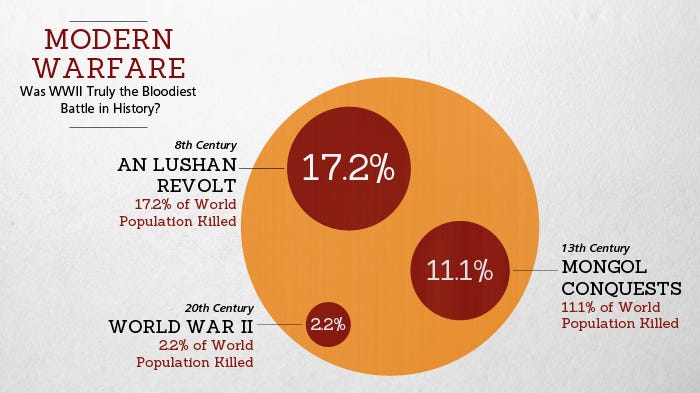Triumphalism
Contra pretty much all the definitions that pop up when searching for “triumphalism”, I hold to its common sense definition:
Believing you are going to win
Put this way, it has tinges of delusion. Can one justifiably believe one is going to win in all circumstances? Perhaps not. Can one believe that one’s life will, in the final analysis, be a roaring triumph? The opposite of The Picture of Dorian Gray? That is something I believe all men are entitled to, and not only that, something they all can achieve. For:
Man is made or unmade by himself; in the armoury of thought he forges the weapons by which he destroys himself; he also fashions the tools with which he builds for himself heavenly mansions of joy and strength and peace. By the right choice and true application of thought, man ascends to the Divine Perfection; by the abuse and wrong application of thought, he descends below the level of the beast. Between these two extremes are all the grades of character, and man is their maker and master.
As a Man Thinketh is fairly excellent. But since it is philosophy, perhaps it sounds too airy-fairy. There are concrete examples of triumphalism carrying the day, however. Consider the following from Mark Manson’s newsletter:
The Self-Talk of Teams - I’m not the biggest American football fan anymore (living abroad showed me that soccer is clearly a superior sport—that’s right, I fucking said it). But I do still follow the NFL casually and watch the Super Bowl when it happens.
One of the cool things that the NFL gets right (maybe the only thing it gets right?) is each Super Bowl, they mic up all of the prominent players and coaches on each team. They then create a long 30-40 minute highlight video where you get to actually hear what the players and coaches say to each other as the game unfolds (you can watch this year’s here). As a psych dork, this video is arguably the most interesting part of the NFL season.
For those of you who didn’t watch or are foreigners, Kansas City was losing to San Francisco by 10 points, and then came back and won in the last few minutes of the game. And what struck me was how much more vocal the Kansas City players were throughout the game. Even when they were losing. Even when they made mistakes. There was a constant chatter going on by their players, pumping each other up, discounting errors, re-focusing on victory.
Then I realized, looking back, this was pretty true of all the previous championship teams as well. The winning teams seemed to have a vocal culture of positive self-talk. Guys stalking up and down the field shouting at each other, “We got this. Let’s go.” The Kansas City players, down 10 points with 6 minutes left were telling each other, “People are going to be talking about this comeback for years.” Meanwhile, on the San Francisco side, awkward silences and empty words. Even when they were winning, they sounded anxious.
Give it a listen while you work or something. Something Manson did not mention is that one of the players of the losing team was actually saying out loud something like “I know I’ll be here again next year” after the game. Even in defeat, he doesn’t stop the pep talk.
The last and best example of triumphalism comes from none other than the US Marine Corps' combat manual, MCDP-1 Warfighting:
The Marine Corps' style of warfare requires intelligent leaders with a penchant for boldness and initiative down to the lowest levels. Boldness is an essential moral trait in a leader for it generates combat power beyond the physical means at hand. Initiative, the willingness to act on one’s own judgment, is a prerequisite for boldness. These traits carried to excess can lead to rashness, but we must realize that errors by junior leaders stemming from overboldness are a necessary part of learning. We should deal with such errors leniently; there must be no “zero defects” mentality. Abolishing “zero defects” means that we do not stifle boldness or initiative through the threat of punishment. It does not mean that commanders do not counsel subordinates on mistakes; constructive criticism is an important element in learning. Nor does it give subordinates free license to act stupidly or recklessly.
Not only must we not stifle boldness or initiative, but we must continue to encourage both traits in spite of mistakes. On the other hand, we should deal severely with errors of inaction or timidity. We will not accept lack of orders as justification for inaction; it is each Marine’s duty to take initiative as the situation demands. We must not tolerate the avoidance of responsibility or necessary risk.
You cannot have effective boldness and initiative if you don’t think you can win.
Triumphalism is not just for individuals, sports teams, and the military. But to see why, first we have to introduce its evil twin: defeatism
Defeatism
Since triumphalism is simply “believing you are going to win”, defeatism is:
Believing you are going to lose
Is there any context in which such a belief is useful? Perhaps for processing grief, though even there, there are triumphalist narratives ready-at-hand (e.g. believing death is a transformation, as Heraclitus said, and not some sort of implausible eternal void as the masses think). Another context that comes to mind is also military. Certainly Hiroo Onoda (Japanese soldier who kept on fighting for almost 30 years after the end of World War II), could have used a dose of defeatism!
It could be argued that defeatism would have averted World War I, given the high jingoistic sentiments that enabled it. But there, the failure was not one of excessive triumphalism (can there be such a thing?), but of a lack of ahimsa, the original (and actually reasonable) pacifism.
Defeatism is the dirge running through the heads of major depressives and neurotics. I would know, having been both of those years ago. And other than pills, the prescription is a healthy dose of triumphalism delivered through some modality of talk therapy like CBT. Trying to succeed or win at anything while thinking defeatist thoughts is like trying to drive somewhere without ever turning right. You don’t take clear cut opportunities, and you entirely miss less obvious ones, even as your demeanor makes it so that less opportunities present themselves to begin with. You are basically blind and you don’t even realize.
Defeatism is essentially pathological. Which is what makes it so interesting that most contemporary intellectual currents are defeatist in nature.
Triumphalism and Defeatism
The ancient philosophies were, with some exceptions, essentially triumphalist. They claimed contact with other realities. They believed death was not the end, or even an end at all. A beautiful transcendent world is accessible if you would just wake up. The Good is the source of everything. Even the actual apocalypse is just the beginning of a new world.
This trend continued all the way through the Dark Ages, and the Middle Ages. Certainly no one would call Christianity defeatist! Then Descartes came along and forced a cleavage where there was none: mind (soul) and matter are now separate. That didn’t ruin everything straightaway. But by the 19th century, defeatism had taken a serious hold. Kant had claimed reality is an impenetrable black box. Kierkegaard that reason and faith are irreconcilable. Schopenhauer, “inspired” by the Eastern doctrines, turned them into defeatist yarns. It’s unclear what Hegel gibbered about (note the ancients did not gibber), but I heard through the grapevine both fascists and communists were inspired by him, so that’s all I need to know. Nietzsche tried to LARP as the ultimate triumphalist, but he failed to live up to his own philosophy, which is a fatal flaw in my eyes.
Modernity happened. We experimented with new forms. Science and technology provided man-made miracles. Then we fought two highly stupid wars that were and are the most violent ever in history. Between that and the revolutions, at least one historian thinks the early 20th century could be fairly called the “Hemoclypse”, or Great Bloodletting. The defeatism didn’t truly set in, however, until the advent of post-modernism. The foremost in the humanities decided all systems are contingent on their context, and that there is no escaping one’s context. This isn’t necessarily bad, but it quickly became a cudgel used by people who can’t even think to undermine and deny the validity of any and every system.
These days, in the higher echelons, nobody believes victory for humanity is possible. Sure they might not say that, may even disagree when pressed, but they ultimately only believe in quantities, e.g.:
Which is not to say that it’s a bad thing that the Bad that can be quantified is going down, or that the Good that can be quantified is going up. The problem is there is no vision for the future, for where we’re going. It’s as if the highest goal is to keep the 90s going forever. And many can feel that:
In particular, this sequence from the documentary Hypernormalisation adroitly points this phenomenon out:
The various defeatist yarns (there is no God and no objective good, all reality is physical, death is the end, game theory and evolutionary psychology rule all human interaction) just piled up on top of each other and made the world seem like a gigantic prison, inscrutable rule upon inscrutable rule, a space where all victory is transient and only death is eternal. Apparently none of the elites have tried to really grapple with their world-views and come up with something good instead. They can. If philosophy teaches anything, it is that the truth is infinite. It is not necessary to believe in all the sad stories just listed, to listen to Deleuze and Camus over Heraclitus and Plotinus.
Why can’t we live in The Dream of a Ridiculous Man anyway? Why must we all experience Liza’s (from Demons) fear?
It always seemed to me that you would carry me off to some place where a huge evil spider as big as a man lives, and we would spend our entire lives looking at him and being afraid of him.
There are no man sized spiders! The sad yarns don’t even make sense!
All the various religious traditions are trying in their own ways to take us there, or somewhere like there. And I trust them more than I do any academic.
Next up, a usage of anti-CBT to showcase applied triumphalism. And if you enjoyed, please subscribe and share:







Thanks for this shot in the arm of positivity. Jobhunting at the moment - more than jobhunting really, new-life-shaping-from-scratch - and need all the can-do spirit I can get.
I'd just add that while I basically agree with everything here, if you go a little more ancient than the era of classical philosophy things seem to get significantly grimmer, at least in some cultures. The pre-classical Greeks and ancient Norse didn't see the majority of people enjoying a truly blessed afterlife, and Hebrews pre-apocalypticism don't seem to have had much of a defined theory of the afterlife at all (something that still characterises a lot of Judaism today). A lot of mythology has a pretty fatalistic worldview.